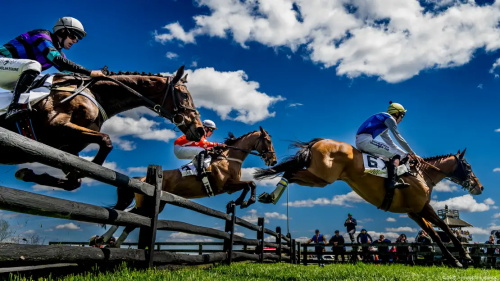The Ethics of Animal Sports: Horse Racing and Greyhound Debates

From ancient Roman chariot races to today’s horse racing and greyhound competitions, humanity’s enthusiasm for animal sports has never waned. However, as awareness of animal welfare grows, these animal-centered competitions are facing unprecedented ethical challenges. The New Zealand government recently announced a total ban on greyhound racing starting in 2026, citing “unacceptably high injury rates” and animal welfare concerns. This decision has once again pushed animal sports into the spotlight—under the banner of entertainment, do we truly have the right to subject animals to suffering and even death?
When it comes to “greyhound racing,” many people may find it unfamiliar; by contrast, “horse racing” is widely known and even regarded as part of cultural tradition. Yet greyhound racing and horse racing operate under strikingly similar logics: both involve training animals to compete, attracting audiences to place bets, and ultimately determining winners. However, greyhound racing is increasingly opposed due to its high injury rates and animal welfare issues.
Statistics show that even though death rates have declined in recent years, injury rates in New Zealand’s greyhound industry remain “unacceptably high,” with many injured dogs being euthanized. The horse racing industry is no exception. For instance, at the renowned Kentucky Derby in the United States, cases of horses suffering bone fractures or dying on the track are frequent.
Horse and greyhound racing are not just sports—they form massive industrial chains encompassing gambling, breeding, training, and transportation, with a global market worth tens of billions of dollars. Driven by economic interests, animal rights are often sidelined. For example, in pursuit of performance, some competing animals are overmedicated or forced to race again before fully recovering from injuries.
What’s more concerning is that animals in both industries typically begin high-intensity training at a young age. Due to the demanding nature of competition, most are forced into early retirement because of injuries or declining physical condition. Post-retirement care is often lacking, and many animals are abandoned, facing uncertain fates.
Faced with controversy, supporters of banning greyhound and horse racing argue that animals are not human possessions and that their right to live free from suffering should take precedence over human entertainment. Furthermore, years of attempted industry reforms have failed to address core issues, making a complete ban the only effective solution.
Opponents, however, emphasize that these industries provide numerous jobs and carry deep cultural significance for many communities. They argue that through technological advances—such as health monitoring systems, improved medical care, and better retirement placement—it's possible to strike a balance between protecting animal welfare and maintaining the industry.
The ethical debate surrounding greyhound and horse racing goes far beyond the sports themselves. It reflects a deeper human reflection—how we coexist with other forms of life in an era of technological and societal advancement. As one scholar of tech ethics once said, “Progress must be guided by a moral compass, or it will be lost in darkness.” In this race that appears to be about speed and competition, humanity is also partaking in another, more profound race—the race to uphold ethics.
The true value of this debate may not lie in determining who is right or wrong, but in sparking public attention and discussion about animal rights. As is often said in debates about human conflict, “Amplifying voices matters more than winning.” Only through education and continuous reflection can we find a true balance between entertainment and ethics.
RECOMMEND FO YOU



